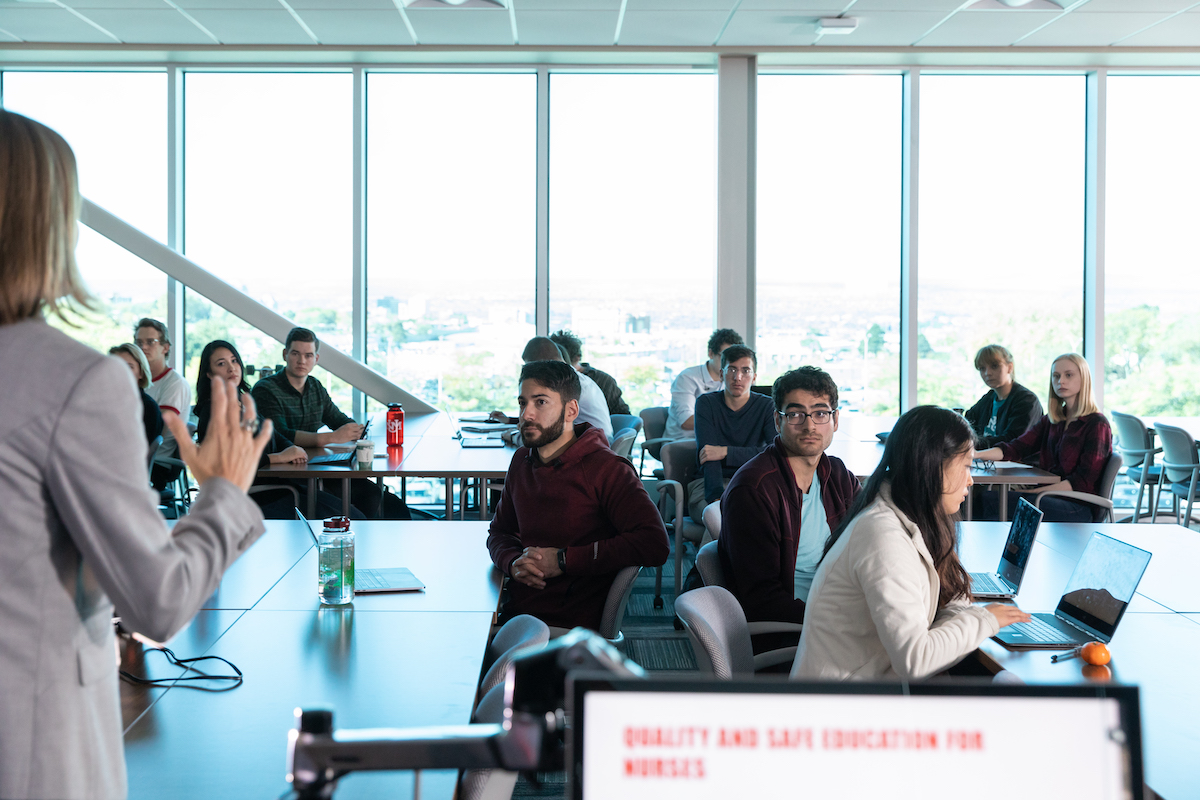Program Provides Research Opportunities for Undergraduate Students
University of New Mexico School of Medicine Launches Learning Environment Office
Fostering a Climate of Respect and Inclusion
Every emerging physician deserves a professional, safe, and supportive environment in which they are able to learn, work, and develop their career. The UNM School of Medicine (SoM) is committed to facilitating the welcoming, respectful, and supportive culture that learners expect and deserve.
To that end, the UNM School of Medicine recently launched the Learning Environment Office (LEO). This office will be led by Diana Martínez, with direct support and input from Dr. Felisha C Rohan-Minjares (Undergraduate Medical Education, UME), Dr. Joanna Fair (Graduate Medical Education, GME), and a dedicated research fellow, Dr. Rebecca Williams-Karnesky.
The Learning Environment Office will promote an inclusive learning environment where teachers, staff, and learners thrive, and relationships are mutually respectful and beneficial to each other and to institutional climate. It is the commitment of the SoM to ensure faculty have joy in their teaching, and learners are excited to train as healthcare leaders. The goals of LEO are to increase exemplary behavior exhibited by SoM teachers and staff, and to decrease incidents of learner mistreatment. Mistreatment may be either intentional or unintentional, and occurs when behavior shows disrespect for the dignity of others and unreasonably interferes with the learning process.
The functionality and services offered by LEO were developed based on ideas and feedback from members of the SoM community, including medical students, residents, fellows, faculty, and staff. As a result of this input, the initial priorities of LEO are to:
- provide a safe, supportive space for medical students, residents, and fellows to receive guidance after experiencing or witnessing an incident of mistreatment, including a review of available options and assistance filing a report, if desired;
- provide a confidential and, if preferred, anonymous reporting tool for incidents of mistreatment;
- collect, track, and report on systemic mistreatment data in order to measure progress;
- be as transparent as possible about what happens after reports are made, providing feedback to learners individually and as a group, as allowable by policy and law; and
- provide educational resources and interventions to medical students, residents, fellows, faculty, and staff, aimed at ensuring a respectful learning environment.
To learn more about mistreatment and/or how to get involved with LEO, please visit our website, or email us at hsc-leo@salud.unm.edu.
